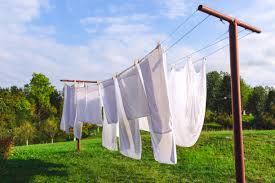
Watching televised coverage of Hell on Earth—a.k.a. the Effects of Global Warming as seen in a wildfire, hurricane, or floating ice shelf near you—I am always struck by those who make like Bartleby the Scrivener and “choose not to.” Leave, in this case.
Stubborn? Stupid? Principled? We can agree to disagree, but we can also agree that it makes interesting fodder to chew on.
And what about us? Put in similar straights, watching the majority around us act one way, would we go against the grain or fall in? Somehow, we’re not sure until we get there (and, in many ways, hope we never get there).
The poet Marge Piercy found choosing to stay notable enough to write about. She starts with robins and whales, then moves on to people to show that such behaviors are part of nature and not particular to humans.
Remnants Still Visible
Marge Piercy
Robins migrate, all schoolchildren
learn but here on the Cape, every
winter a flock forms and stays,
long frigid months after their
compatriots have flown south.
They live deep in the woods on
hips and berries wizened by cold.
Sometimes they appear here
among the feeder birds, one
or two almost outcasts.
Off Alaska when humpback whales
leave in fall as the waters freeze
and the world turns white, heading
for mating grounds off Hawaii
and Mexico, certain whales remain.
What makes a creature stay when
almost all of its kind have moved on?
In burned-out areas of Detroit,
you’ll notice one house still wears
curtains, a bike locked to the porch.
Sometimes in the suburbs among
tract houses with carpets of grass
one farmhouse lurks, maybe even
with a barn. I imagine its owner
grey and stubborn, still growing
the best tomatoes for miles, refusing
to plant inedible grass, fighting
neighbors about her chickens,
a rooster who crows at four,
her clothesline a flag of defiance.
Note how stanza four starts with the central question, the catalyst for creativity in the first place: “What makes creatures stay when / almost all of its kind have moved on?”
I remember reading Elie Wiesel’s Holocaust book, Night. His family and fellow Jews had all kinds of warnings about the approach of the Nazis and consequences that might follow when they marched into his hometown, yet his family and the vast majority of the rest chose to stay. It’s hardwired.
As for Piercy, the much simpler example is the farmer who refuses to yield to suburban sprawl and its silly neighborhood covenants (e.g. Thou shalt not have a clothes line where public eyes can see the horror of it all).
In this case, you almost want to cheer for her rooster and that “flag of defiance” known as wind-flapping underwear and brassieres.
Now pass the tomatoes.